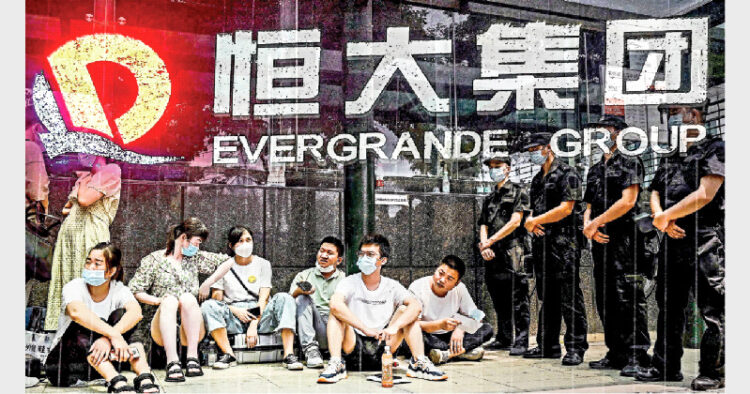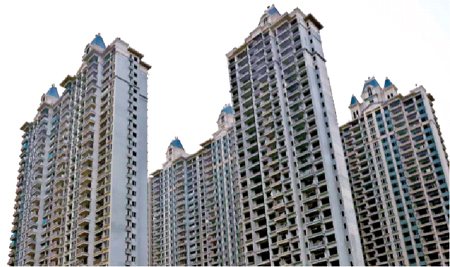The Chinese Communist Party (CCP) wants to give the local market a warning without instigating too much mutilation globally. In 2020 as per Forbes, China had 626 billionaires as of last year, as compared 724 to the U.S. Premier Li Keqiang has disclosed that 600 million Chinese barely earn 1,000 yuan (approximately $155 ) per month.
Tightening Norms
Since the beginning of 2021, the Chinese Government has tightened its regulations for many sectors, including gaming — casinos and video games — and Big Tech in the country and even celebrity culture.
As per the Chinese State, through this crackdown, the CCP is working to achieve the noble cause of common prosperity; to address the wealth gap.
As CCP’s current five-year plan states, China wants to achieve socialist modernisation; by 2035. Is Xi Jinping moving away from Western-style capitalism, back more closely to socialism?
Even for short or medium-term, this paradigm shift can cause panic and pain to CCP’s opponents and opposers. For example, external stakeholders are panicstricken. The Evergrande saga caused 2.1 per cent fall in Australia benchmark – ASX200 as investors dumped mining stocks such as BHP and Rio. The iron ore price, Australia’s main export, has fallen 60 per cent to below $100, a ton from its high point in May.
Great Fall of ChinaThe fall of Evergrande, the real estate behemoth that owns over 1,300 projects in a mind boggling number of 280 cities in China, has sent shockwaves throughout the globe. The real estate developer is notorious for binging in debt. Now it is facing the music as investors are panicking and experts are warning of an imminent failure. Moreover, its negative state will adversely impact a large proportion of Chinese citizens who have invested in it.
Collapse of Evergrande would be disastrous for the whole sector In its glorious days, Evergrande owned virtually the best of big businesses ranging from China’s best professional soccer team to mineral water bottles. It even dabbled in pig farming. Inevitably, it became almost a Frankenstein Monster that even has a unit producing a range of electric cars. Today, Evergrande is seen as a threat to China’s banking system.Billed as the largest property company, Evergrande suspended trading on its onshore bond after a domestic ratings cut. As a result, China’s junk bond or high yield debt market is now offering a record 14.4 per cent yield. Evergrande now has the notorious distinction of being the world’s most debt-saddled property developer. It has been on life support for months. A steady drumbeat of bad news in recent weeks has accelerated what many experts warn is inevitable failure. With a business plan based on massive debts, this real estate borrower in the world whose overall liabilities exceeds $300 billion (22.5 lakh crore), ended up purchasing a soccer franchise, Guangzhou Football Club. It also constructed a $1.7 billion soccer stadium. |
As per Forbes, in recent years, at least half a dozen Chinese billionaires and wealthy business people have vanished from public life for a while after running afoul with the Chinese Communist Party.
Negative Result on World
But, it may harm China in the long run if on-time relief measures are not provided because about 29 per cent of China’s GDP depends on real estate. Evergrande has a debt of around $300 billion, which includes $19 billion in offshore U.S. dollar-denominated bonds. Further, Evergrande pleaded that it couldn’t pay $80 million worth of interest payments, due in September 2021.
Evergrande’s balance sheet displays 128 banks and 120 other institutions with direct exposures. This includes major global investors like BlackRock, Amundi, UBS Asset Management, Ashmore Group, HSBC Holdings, Fidelity, PIMCO, and Goldman Sachs Asset Management. Evergrande has about 800 uncompleted projects, and about 1.2 million home-buyers are waiting to move in. Apart from financial debt, Evergrande has to pay around 667 billion Chinese yuan (about $103 billion) for outstanding trade payables. Further, by next year, Evergrande will have to pay approximately 240 billion yuan ($37.16 billion) of trade payables if it remains a going concern. The cash crunch has led to over $1 trillion worth of Evergrande projects being unfinished. If there is a contagion, or a default leading to bankruptcy, it will affect economic activities in China, which in turn, may have cascading negative consequences for the world.
Cash Crunch Halts Projects
Evergrande’s liabilities are worth 2 per cent of China’s GDP approximately. Evergrande employed 200,000 Chinese, who themselves have invested billions of yuan in the company’s wealth management products (WMP). Evergrande has more than 800 projects under construction, more than half of them halted due to its cash crunch. Thousands of upstream and downstream companies depend on Evergrande for business, generating more than 3.8 million jobs annually.
Like many of China’s “too big to fail” businesses, Evergrande’s crisis has instigated rumours over the possibility of CCP stepping in to save Evergrande. Two Shenzhen State-owned Assets Supervision and Administration Commission (SASAC) owned enterprises, namely Shenzhen Talents Housing Group Co. Ltd. and Shenzhen Investment Ltd., are in discussion with Evergrande for Shenzhen-based projects.
Depend on Crowdfunding
Evergrande used to raise capital through crowdfunding also. One such crowdfunding initiative targeted its own executives was named Chaoshoubao, which means super return treasure. In 2017, Evergrande applied for project financing from state-owned China Citic Bank in Shenzhen, but Citic Bank mandated that Evergrande’s executives personally invest some amount. At this juncture, Evergrande announced the Chaoshoubao initiative for employees and promised 25 per cent annual interest and full redemption of the amount in two years. For the Chaoshoubao scheme, Evergrande employees must invest at least three million RMB. Eventually, after the initial success of the Chaoshoubao scheme, Evergrande received 40 billion RMB from China Citic Bank. But in 2020, this deal was under scanner as Chen Xuying, former Vice President of China Citic Bank and head of the bank’s Shenzhen branch, was arrested and sent to jail for 12 years for accepting bribes after issuing loans.

"Evergrande seems like China’s Lehman moment. Reminds us of IL&FS. The Indian Government acted swiftly. Provided calm to financial markets. The Government appointed board estimates 61% recovery at Infrastructure Leasing & Financial Services. Evergrande bonds in China trading ~ 25 cents to a $.”
— Uday Kotak, CEO of Kotak Mahindra Bank
Arm Twisting Employees
In 2019, when the Chaoshoubao was due, Evergrande asked employees who invested in Chaoshoubao to agree to a one-year extension for repayment. Further in 2020, Evergrande again forced employees to accept another one-year extension. Even on repayment, Evergrande didn’t fulfil the promise. An investor said they received a four per cent to five per cent annual return, far below the 25 per cent promised to return.
After a while, Evergrande’s cash flow crisis was uncovered. Evergrande repaid principal only to current officials. From late August to early September, Evergrande reimbursed current officials and employees about 2 billion RMB but owed 200 million RMB to former staff, including Ren Zeping, former chief economist of Evergrande who joined Soochow Securities Co. in March.

“Borrowing of $305 bn from 128 banks and 121 NBFCs -Growth model through rampant debts -Bought soccer team, building a soccer stadium of $1.7bn, went into bottled water and EV business -Now global fear of its collapse. Who could be India’s Evergrande?”
—Harsh Goenka, RPG Enterprises Chairman
Later, Evergrande’s wealth department started selling WMPs to the public. The majority of these WMPs offered five per cent to ten per cent, with a minimum investment of 100,000 RMB. Evergrande’s employees and their families bought 20 million RMB worth WMP within five days, considering the high returns.
Two things make Evergrande’s distress extremely risky for the Chinese Government: its size and effect on Chinese citizens who thought they had purchased a ticket to become the middle class. Confidence in the Government’s wisdom and ability to guide Chinese families to a future of prosperity and a belief that investment in property and property-based assets could not fail must both take an unrecoverable hit.














Comments